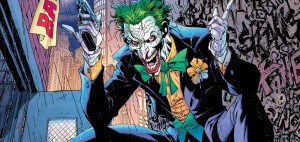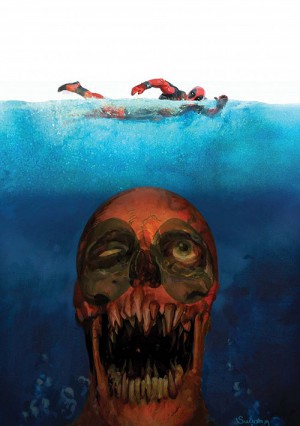
But c’mon: Deadpool already had a contempt and a disregard for its own movie and its audience. But maybe it’s a gimmick, like someone playing hard to get or playing the giant asshole who is trying to bring out the subservient masochist in so many of the fanboys. You can see that dynamic at play if you’ve been to Comic Con, among all the willing boys and men who would allow a famous hot actress to shit in their mouth and they and the fanboys would then shriek with delight and bag the turd and save it forever, preserved for eternity… label it “the hot actress’s stool sample, Comic Con 2015, Saturday”.
But has Deadpool made itself review- proof…? Yes, it has, at least it has for the fan boys, who already think Deadpool is the smartest, coolest, toughest superhero film in a while. Yes, it’s review-proof. And it’s already made a big huge buttload of cash. But – is this a smart film? Is it a game-changing, life-altering, or important film? No, no it’s not. And I guess it’s not meant to be that at all in any way, shape, or form. It’s just another angle on the fully exploited superhero genre that doesn’t look like any recent shallow superhero fare… and it was designed that way. Did it fool all the fanboys? Um… have you been to Comic Con at all lately? It doesn’t take much to fool the fanboys and fangirls.
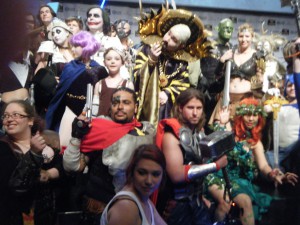
So it made money and that’s all a film needs to do these days. And it satisfied the fan base AND a good portion of the film critic establishment was placated by Deadpool and the apparent choice by the filmmakers of this adaptation to appear to not pander to formula. But in the end it really was strictly formula, just ever so slightly less obvious formula.
You have:
A) Yet another origin story,
B) The main thread is a love interest and the redemption with the love interest by the end of the movie,
C) Good guy vs bad guy as primary plot device,
D) Trite happy ending, up to and including the big kiss / big finish,
E) Big messy chaotic closing fight scene ( just before being reunited with love interest) (of course),
F) Did I forget…? It’s a Marvel superhero film (that I paid for again).
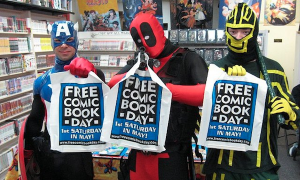
So you throw in an extra bit of biting sarcasm via the lead actor, a little bit of structural lack of orthodoxy (in terms of, mostly, the opening credits), and then the fourth wall demolition of Ryan Reynolds’ Deadpool talking to you (a D’pool book staple), and you have all the appearances of a rogue film.
But Deadpool, for all its apparent efforts to not be just another Marvel superhero film, is just that – pure formula superhero genre fanboy bait. Escapist Marvel magic part 17. Part 41. Part 7, 8, or 9. Deadpool is good enough to not be disappointing and self-aware enough to shift the surface aesthetics just the right amount to appear to be “totally different”.
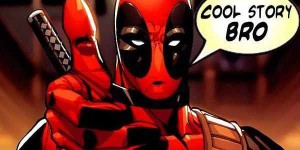
Alright, you may already be feeling the defensive hackles going up. And on a mainstream cinema, profit-motivated, escapist level, you’re absolutely right. I’m completely wrong and I admit it. Most of you wanted escapist costumed-avenger cosplay fun for an hour and a half to two hours and you needed a proxy for the lack of any justice in the world and you were served up just what you wanted. It was fun… a lot of fun. Even I enjoyed the proceedings and felt no cheating of my box office exchange (although I paid $10, not the usual $15 of some cinemas, so…)
(but… maybe that was also part of the marketing plan…? Make Deadpool immune to people feeling cheated of their money.)
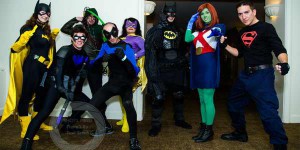
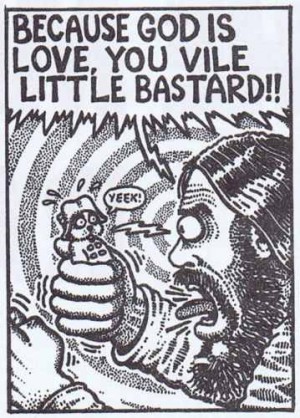
Deadpool is rated R. What does that really mean though and why has that become part of the side-narrative when Deadpool is discussed? Well most R- rated films are automatically looking at a loss of revenue particularly in the case of superhero fare and their usual demographics: teens and preteens. But Deadpool seems to have suffered almost no apparent economic blowback from the willingness to release the film as an R-rated affair. Usually, studios like Warner, Fox, Disney, etc. have enough implicit and explicit pull with the MPAA (our national puritanical pseudo-PMRC ratings sham), that enough pressure or outright bribes can result in a PG-13 rating and thus hundreds of millions more in box office revenue and sequel money and so on. Which is pretty much how the Chris Nolan Batman films made so much money… somehow someone somewhere managed to fix the PG-13 ratings for those films, opening up almost double what the Nolan trilogy would have made, if not more, at the box office. I have no problem with that, other than the fact that there’s a huge double-standard and films with gentler themes than the Batman movies, but being released by studios with far less influence with the MPAA than Batman’s Warner Bros., often get held to a higher standard and wind up with an economically-limiting R rating.
(Don’t be surprised if the next Deadpool entry is released with a PG-13 rating. You’re already on board to see it anyway.)
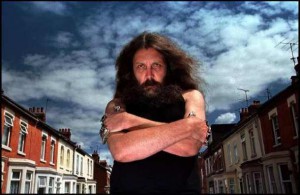
The R-rating is tricky though since Christopher Nolan managed to avoid it, even though his films are far more intense for the primary demographics of superhero films and certainly had many things that are much more potentially upsetting than anything in Deadpool. Even the strap-on suggestion of only mildly lubricated anal sex, which could easily have been mitigated, overlooked, or made to seem more innocuous wasn’t really that big of a deal.
This was all tweaked just enough so as to avoid a few things and the R-rating may in fact have been part of the marketing plan: make it seem rough-edged, daring, and no longer safe for the fanboy base and to the critics, even though it’s internally another rote, formula offering, just not exhausting like the Fantastic Four bombs or the last whole array of tensely mediocre Superman movies dating all the way back to the ’80’s. Too many of the superhero films were getting too soft and fluffy and didn’t seem to have any edge at all. So the intention seems to have been to make Deadpool seem like a really more hard-edged and badass story, mostly in line with the way the original Deadpool comic is told anyway.
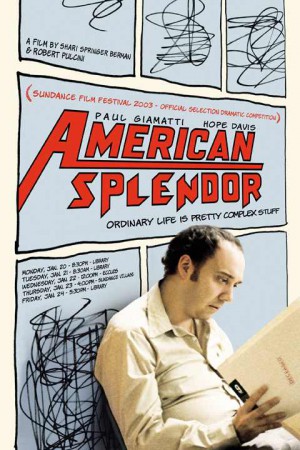
What’s really at stake here is not just one film, not merely Deadpool, but the parameters of future films and not just superhero films.
American Splendor, among others, is really what a film can be when the studio’s demands and the artists are both unshackled and not needing to make financial concessions to satisfy stockholder demands and non-artistic garbage like that.
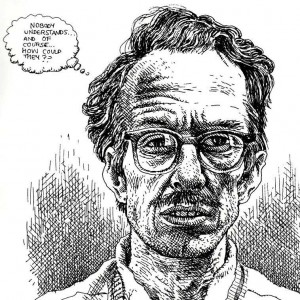
But, as easygoing and as “delightfully” escapist as the Deadpool film was, did I forget most of Deadpool’s intent or meaning by now? Was any of the story at all new or significant? Was it another ritualistic Good vs Evil ceremony brought to you by Marvel? I can answer those questions with another old question: did Stan Lee fuck over Jack Kirby and Steve Ditko? A lot of answers to a lot of questions. Nothing definitive. It doesn’t even matter that Deadpool has nothing to do with any of those three comic book legends.
So: Yes. And no. And it doesn’t matter, because it’s just another superhero movie… brought to you by Marvel. Or was it brought to you by “Brawndo”…

Comic books have been more of an alternative subculture for most of their existence and it’s only recently that the big film studios have been able to cash in so completely on this former subculture. That’s just the way it goes sometimes. Money is king. And it looks like pretty much everyone wants lots of money. No stopping it. You fight it, you get pulled under the wheels and chewed up, mangled. The subcultures, though, all had an element of rebellion in them. I’m not sure where that has gone in the comics culture, but it’s marginalized and most of what is seen on the screen is superheroes, colorful capes, good vs. evil morality tales. And comics always had the best stories that had not yet been made into films or were too sophisticated for mainstream film audiences. So it is not totally surprising that the the most easily accessible and the most easily grasped concepts and stories are the ones we now know of as comics movies. Superheroes and the dichotomized black & white thinking of superheros, saving the planet or the city from yet another intensely non-complex pure-evil villain…? And a good portion of it really was originally propaganda and is still often showing traces of that military propaganda, particularly in an age where war is still being fought for questionable reasons and a lot of the Hollywood studio execs often still have connections to military people and other shady military-corporate folks. So quite a lot of superhero stories would often have the appearance of justifiable and many fans grow up on those kinds of stories, the propaganda becoming normalized. And there are many subtexts for warmongering and versions of patriotism. Really dumb stuff, mostly derived from the Golden Age comics stories, which were largely designed for the minds of pre-teens but also largely a product of the age of the two World Wars and the fear of the real-life enemies during those years. Those fears, many of which are now paranoid, remain. And the reality of comic books being adapted by Hollywood studios, who in turn are owned by massive corporations, is that there are many political and military agendas that still factor into how many of the blockbusters are green-lighted by the studio executives. So there are other reasons why many more subversive or “risky” films don’t get made by certain studios… if a story or comic does not have a particular kind of agenda. Even long after the years of the McCarthyist witch hunts in the 1950’s.
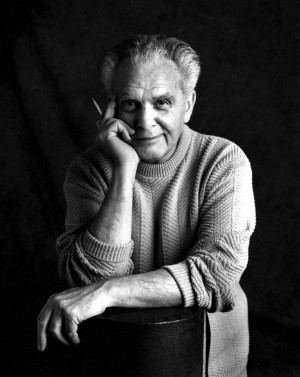
The Silver Age and Marvel upped the ante and made the stories a little more complex and bridged some of the age gap. But what we see in the stories making it to the screen and representing the comics artform is largely Golden Age-level stories, good guys drumming justice into people, one way or another. It might as well be propaganda for the military or for law and order morality, as many of the comics once were. And Deadpool is another kind of substitute for law and order, a “super hero”, another character designed to fulfill that need for justice, again a substitute for the lack of real and satisfying law and order. And Deadpool, for all the liberties he takes in his pursuit of justice, could easily represent the liberties the agents of law and order in real life take with people’s lives & liberty and how we see it play out on other visual platforms lately, on the news, in viral videos, out in the streets. Crazy, loose-cannon cops bringing their brand of immediate, self-imposed justice to bear – judge, jury, and executioner. No real due process and no actual carriage of Justice. Deadpool could very easily be interpreted as a representation of those corrupt, chaotic, insane cops killing people on the street. It’s really not that much of a stretch. Is that the hero we wanted to celebrate? A parallel to bad cops? Even some comics fans don’t really like Deadpool and think of him as a bit of a dick and mostly unredeemed.
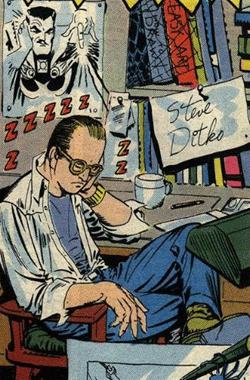

All of the intent of modern and more sophisticated comics, and the long road it took to get comics to become one of the most daring and trailblazing artforms is really being bastardized and exploited now, in particular by Hollywood, used for almost all of the opposite intentions. The best stories in the comics world remain unproduced by Hollywood – and when the greatest stories are brought to the screen, they are often bungled and compromised, as with Watchmen. Instead, we usually get a steady diet of Superman, Batman, and Spiderman – and the scripts are usually intensely simplistic and reduced to meaningless drivel… good guys win, bad guy gets killed or banished to oblivion, etc. etc. Rituals and passages that are as repetitive as the James Bond formula. Visceral and really fun, but very little real storytelling.
From my view, comics superheroes and the cults that have emerged around them are a lot like prophets and religions in the way that people are looking for someone to swoop down and make their life better and bring quick & immediate justice and some kind of utopia. And superhero comics sometimes seem to bring out a similar kind of fanaticism as some of these purported holy books and screeds. Fiction. Not always a bad thing, but definitely filling a hole in our lives with fantasy, imagined scenarios, great stories, and heroes to come save us when we’re losing and we feel impotent. Sometimes we gotta inspire ourselves with fiction. Fake it.
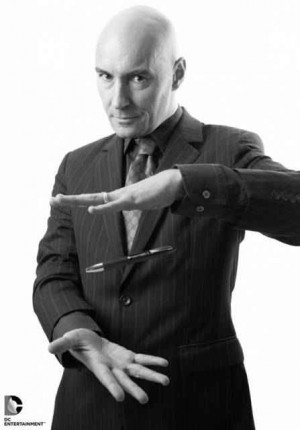
Was any of this Deadpool film really revolutionary or truly iconoclastic or actually rocking the boat at all, as it seems to imply that Deadpool is, just by the very existence of the comic and the character?
So why is escapism so lusted for … or is it a call toward some higher purpose or some other knowledge. There is something about the fanboy mythos and the geeks and nerds that is so much more about dwelling in wonder and openness. Go to any sports bar and you can witness the dumb drunk former-high-school-jock types and some of the urban rednecks in those sports bars and you can really learn to love one of the alternatives: the curiosity and intelligence of the nerds and the fanboys and so on… but some of that innocence and curiosity and vulnerability is being taken advantage of by the big movie studios now. What I really see at Comic- con now is wonder and lust for life and vision and love of everyone by everyone, especially the freaks, weirdos, 40-year-old virgins, and the misunderstood.
Look at the goofy people who spend their waking hours in religious zealotry or any kind of religious attention during the year whatsoever, whether it be Christmas, Hanukkah, or Ramadan… nice ideas maybe somewhere in there possibly, but a total waste of time and an even greater waste of a good mind. And religion is really just low-level science fiction, little Ronnie Hubbard cult stuff. The comics and science fiction and fantasy fanboys and nerds really go a lot deeper than most genres of human beings. Would you rather hang out with the drunken retired cop or fireman at a sports bar or a really passionate fanboy who can see beyond the limitations of our mundane physical world? Problem is it is all being monetized too quickly… and it seems to be disrupting what was a natural and pleasant artistic development over a few decades. You get Hollywood and their big greedy groping assholes involved and all the magic often disappears.
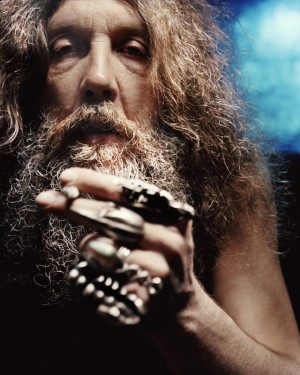
Comics needs to be better represented in Hollywood. Deadpool is not moving the bar higher, nor are any other recent comic book films. And this is exactly why Alan Moore had his name taken off adaptations of his best work, Watchmen, V for Vendetta, League of Extraordinary Gentlemen, From Hell, and every other film made of his writing. Moore may be very picky and very particular, but these comics films being produced often aren’t much more than product. Some of the films may be entertaining and often really well-made or somewhat clever and occasionally we get something as good as a Christopher Nolan adaptation, but the genre is largely being mined for profits, as if it were an ATM for Hollywood studio millionaires. And the films that make the most money are often the films with the least interesting screenplays. Art itself was meant to be more than just a financial resource. But no one in the Hollywood studios rocks the boat anymore. Too scared to take a chance on an original story and too timid to invest in much more than superhero repetition. Not enough Neil Gaiman or Grant Morrison or Alan Moore. Or how about Daniel Clowes, to take an even more daring chance.
The superhero genre seems to fit the traditional Hollywood mold, the good guy versus bad guy crap, simple and mindless tales, practically biblical in their repetitive dogmatic preachy irrelevance. Too many millions of dollars at stake in safe and easy film product. Even most film critics, who represent some of the oversight on the film industry, are mostly in it for the money themselves. So the formulas continue.
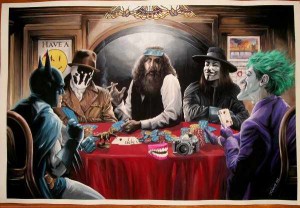
But you can try to escape week after week with each new film. Eventually the movie ends and most of us are back in some kind of cage or trap. Real escapism is only going to be fulfilled and turned into ACTUAL ESCAPE when real stories are told that are important… the stories that get people out of their seats and not just coming back for the next sequel like junkies or addicts who need another fix. There are so many great unproduced scripts and so many great unproduced comics. There’s absolutely no reason for people to keep supporting the next Superman movie and the next Batman movie and the next Spiderman reboot or anything from Marvel, or Disney, which owns Marvel, (despite Disney having nothing to do with Deadpool). These corporate conglomerates have completely watered down comics. And this article here you just read isn’t about being a party pooper for those of you who dig that superhero ritual or the taste of costumed capers – it’s about knowing that these comics films can be better and that the better comics haven’t been produced yet… and many of the comics artists and comics writers have said the same thing. It’s a very commonly held perception in conversations you might overhear at comic stores. Comics films were starting to implode at the box office recently and there was a lot of superhero burnout for the audiences and that was apparent in people beginning to not show up for formula comics films. Deadpool is a slight reshuffling of the deck, but it’s not revolutionary and it’s not going to usher in a new era and it’s not at all profound or sublime or going to take anyone to a higher plane. But it is a nice light entertainment and you can laugh a little and kill a couple of hours with a friend or a nephew. It’s a fantastic amusement. It might even make you seem a little bit hip and edgy to your niece or nephew. But it’s probably a much better deal to take your niece or nephew to a truly revolutionary experience and to have them really inspired and moved, rather than just impressed by costumes and special effects and a slight twist on the old formula.
We can still have those better films. The best scripts are sitting there waiting. And the majority of them are sitting in someone’s desk drawer. Or still on the shelf at the comic store. Every now and then one of them gets made, like when we got the gift of Paul Giamatti in American Splendor. It still happens every once in a while. It’s absolutely up to us to choose what we want. You really want to see Batman go through 10 different actors in your lifetime and very similar scripts, so many similar scripts that the stories don’t even seem to matter anymore. There are a hell of a lot of writers out there who take a huge amount of chances in comics – but it’s likely that it’s not going to be coming out of Marvel or DC in the form of a superhero tale. Start with some more of the obscure Alan Moore stuff, Neil Gaiman, Dan Clowes, Grant Morrison, Warren Ellis, Bob Fingerman, and whoever else you find when you dig a little deeper. These seriously brilliant writers and their creations deserve your attention and your money a hell of a lot more than Batman, Superman, Spiderman, and even Deadpool. Unless you really do get a hard-on for superheroes every single time. Then, by all means… have a good time.

